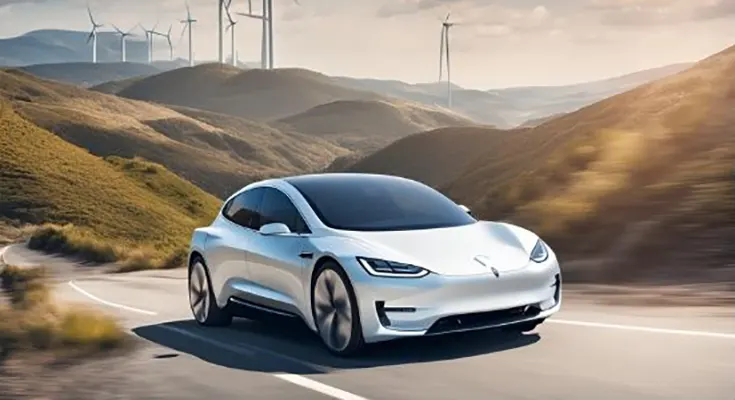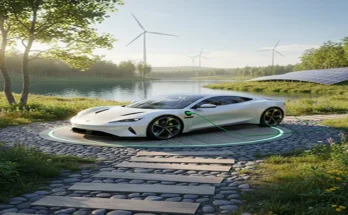Electric vehicles (EVs) are rapidly transforming the automotive landscape, offering a range of benefits that extend beyond mere transportation. As technology evolves and the global push for sustainability intensifies, EVs are emerging as a key solution to address environmental and economic challenges. This article explores the many advantages of electric vehicles, highlighting why they are becoming a preferred choice for drivers around the world.
1. Environmental Benefits
Reduced Greenhouse Gas Emissions
One of the most significant advantages of electric vehicles is their potential to reduce greenhouse gas emissions. Unlike internal combustion engine (ICE) vehicles, which emit carbon dioxide (CO2) and other pollutants through the burning of fossil fuels, EVs produce zero tailpipe emissions. This shift is crucial in combating climate change and improving air quality, particularly in urban areas where vehicle emissions contribute significantly to pollution.
Lower Air Pollutants
Electric vehicles help decrease the emission of harmful pollutants such as nitrogen oxides (NOx) and particulate matter (PM). These pollutants are linked to respiratory and cardiovascular issues, making their reduction a key benefit for public health. By switching to EVs, cities can experience cleaner air and improved overall health outcomes for residents.
Renewable Energy Integration
EVs can be powered by renewable energy sources such as wind, solar, and hydroelectric power. As the electricity grid increasingly incorporates renewable energy, the environmental benefits of EVs are amplified. Charging EVs with clean energy further reduces their carbon footprint, contributing to a more sustainable energy system.
2. Economic Advantages
Lower Operating Costs
Electric vehicles are generally cheaper to operate than their gasoline or diesel counterparts. They have fewer moving parts, which reduces maintenance costs. There is no need for oil changes, and components like brake systems experience less wear due to regenerative braking. Additionally, electricity is often cheaper than gasoline or diesel on a per-mile basis, resulting in lower fueling costs for EV owners.
Government Incentives and Rebates
Many governments offer incentives and rebates to encourage the adoption of electric vehicles. These can include tax credits, rebates, reduced registration fees, and access to carpool lanes. These financial benefits can offset the initial purchase price of an EV and make them more accessible to a broader audience.
Increased Resale Value
As EV technology matures and becomes more mainstream, electric vehicles are gaining higher resale value. The growing demand for used EVs, coupled with advancements in battery technology and extended warranties, contributes to better long-term value retention.
3. Performance and Driving Experience
Instant Torque and Smooth Acceleration
Electric vehicles are known for their impressive performance characteristics. They deliver instant torque, providing smooth and rapid acceleration. This immediate power response offers a more exhilarating driving experience compared to traditional ICE vehicles, where acceleration can be less responsive.
Quiet Operation
EVs operate more quietly than conventional vehicles, reducing noise pollution in urban environments. The quiet nature of electric drivetrains enhances the driving experience, making journeys more pleasant and less disruptive to surrounding communities.
Regenerative Braking
Regenerative braking is a feature in electric vehicles that captures and reuses energy during braking. This process helps to extend the vehicle’s range and reduces the wear on traditional braking components, further enhancing the efficiency and longevity of the vehicle.
4. Technological Innovations
Advanced Infotainment and Connectivity
Electric vehicles often come equipped with the latest infotainment and connectivity features. Many EVs offer sophisticated navigation systems, real-time charging station locators, and over-the-air software updates. These technologies enhance the driving experience and keep vehicles up-to-date with the latest features and improvements.
Enhanced Safety Features
The development of electric vehicles has also led to advancements in safety technologies. Many EVs are equipped with advanced driver assistance systems (ADAS) such as adaptive cruise control, lane-keeping assist, and automatic emergency braking. These features contribute to overall road safety and help prevent accidents.
5. Energy Independence
Reduced Dependence on Fossil Fuels
Electric vehicles contribute to reducing reliance on fossil fuels, which are subject to price volatility and geopolitical tensions. By transitioning to EVs, countries can decrease their dependence on imported oil and foster energy independence. This shift supports energy security and can stabilize national economies by reducing exposure to global oil market fluctuations.
Home Charging Convenience
EV owners have the option to charge their vehicles at home, providing convenience and flexibility. Home charging eliminates the need to visit gas stations, saving time and offering the convenience of starting each day with a full battery. Additionally, advancements in home charging technology make it easier than ever to integrate EV charging into daily routines.
Electric vehicles offer a multitude of advantages that extend beyond their eco-friendly credentials. From significant environmental benefits and economic savings to enhanced performance and cutting-edge technology, EVs are redefining what it means to drive sustainably. As technology continues to advance and infrastructure improves, the adoption of electric vehicles is poised to accelerate, driving us toward a cleaner, more efficient, and sustainable future. The shift to EVs represents not just a change in how we travel, but a profound transformation in how we think about transportation and its impact on our world.





